Dispute resolution with an entrepreneurial mind-set: mediation and online mediation
Back to Closely Held and Growing Business Enterprises Committee publications
IBA Latin American Entrepreneurship Conference: challenges and opportunities in Latin America
This conference was presented by the IBA Closely Held and Growing Business Enterprises Committee. It was supported by the IBA Latin American Regional Forum, IBA Corporate and M&A Law Committee, IBA Insolvency Section, IBA Intellectual Property and Entertainment Law Committee, IBA Professional Ethics Committee, IBA Women Lawyers’ Interest Group and IBA Young Lawyers’ Committee. São Paulo, 6–8 November 2019
Friday 8 November 2019
Raimundo Muñoz
Muñoz Jeanneret Alvarez y Cia, Santiago
rmunoz@mjac.cl
Session Co-Chairs
Marcelo Perlman PVG – Perlman Vidigal Godoy Advogados, São Paulo; Co-Chair, Creditors’ Rights Subcommittee, IBA Insolvency Section
Fernando Triana Triana Uribe & Michelsen, Bogotá
Speakers
Jaime L Iglesias Garrigues, Bogotá and São Paulo
Sandra Sellers President, Technology Mediation Services, Washington, DC
Helena Tavares Erickson Senior Vice President, Dispute Resolution Services and Corporate Secretary, International Institute for Conflict Prevention & Resolution (CPR), New York
This session reviewed how mediation can, by keeping decision making powers in the hands of the disputing parties and potentially maintaining ongoing business relationships, serve as an efficient dispute resolution toolkit for rapidly expanding businesses. It also discussed mediation itself as an innovative business technique, including in connection with technology-driven online mediation.
The speakers based their contributions to the discussion on several surveys, on which attendees could vote through their mobile phones or laptops in real time. The results of the surveys are included below.
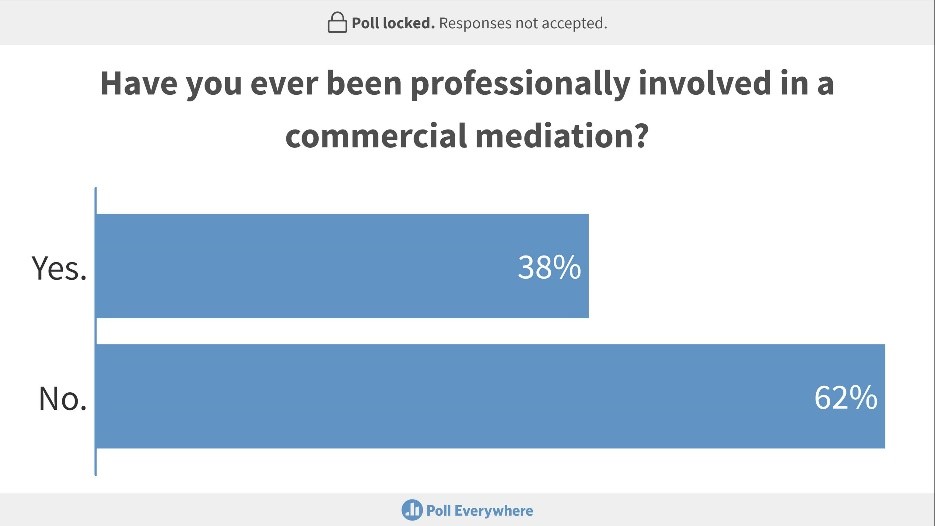
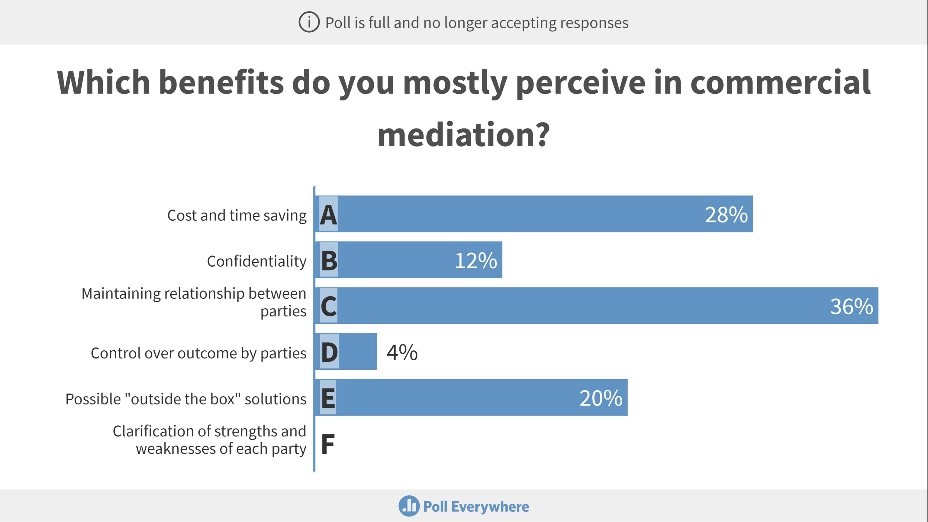
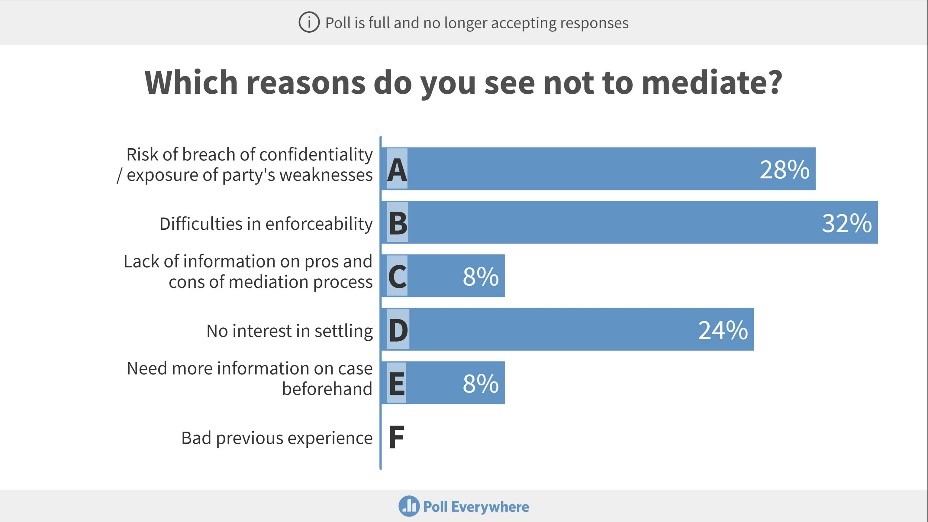
Following the first surveys, Sandra Sellers explained what mediation is and the differences between mediation and arbitration. She described the positive aspects of mediation, besides the creativity which mediators are often called on to demonstrate, including:
-
controlling of the outcome by the parties;
-
devising cost and time savings; and
-
maintaining the relationship between the parties.
There was also a possible negative aspect, problems of enforceability in some jurisdictions. Sellers added that there is ongoing work at the United Nations to establish an international treaty on mediation.
A question was asked from the audience regarding the confidentiality of the parties’ exposition of their respective case. Sellers answered by describing the procedure of a mediation in which confidentiality is paramount, even though she pointed out that there was not a ‘standard mediation procedure’ because parties are free to establish any procedure they see fit.
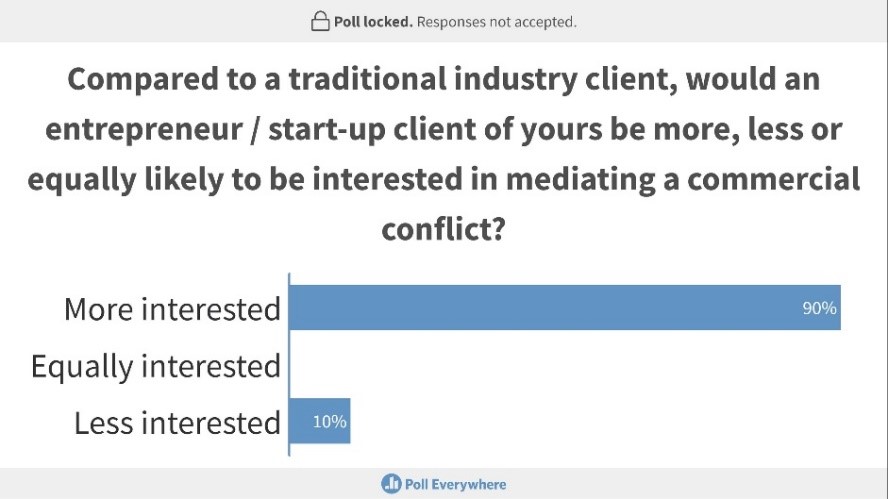
Helena Tavares Erickson stated that the parties in a mediation should select the mediator emphasising their creativity. She described a ‘typical’ mediation procedure and added that the UN Singapore Convention addresses enforcement of mediation agreements.
Session Co-Chair Fernando Triana pointed out that Latin America has adequate ad hoc mediators as there are several experienced institutional bodies for arbitration and mediation throughout the region.
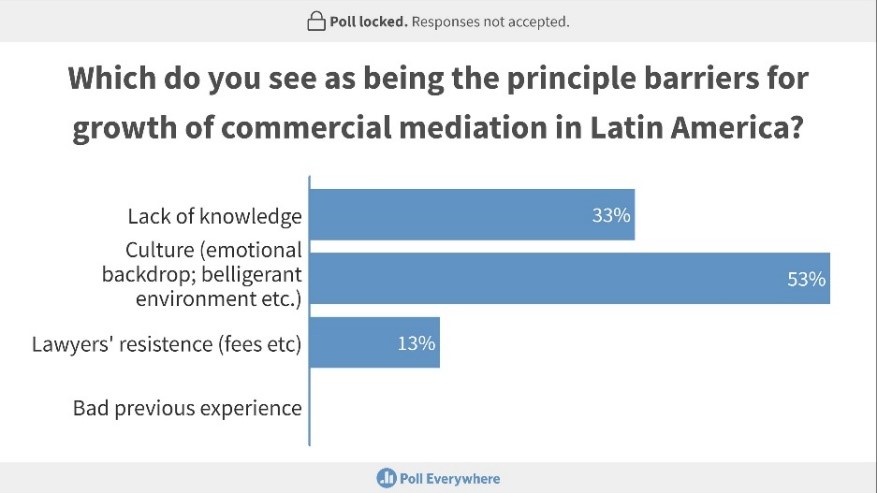
Jaime L Iglesias referred to reasons why people do not use mediation as a conflict resolution method and said that such difficulties and/or trepidations were similar in Latin America to other more developed jurisdictions. These reasons included:
-
‘showing one’s cards’ before court proceedings;
-
a lack of knowledge, as until recently, mediation was not even mentioned at law school; and
-
the lack of professional interest from litigators, who would prefer a ‘good trial’ rather than mediation.
He added that mediators should have experience and training to increase the possibility of obtaining a successful outcome.
Erickson pointed out that she believed that Latin America was better suited for mediation than other jurisdictions because of the abundance of family businesses and many family lawyers. Some of the region’s jurisdictions even include mandatory mediation in family law matters.
Sellers added that the mediator can be an ‘experience neutral’ party and participate in identifying which issues can go wrong in a transaction, including establishing a procedure thereof. This, as opposed to a procedure of negotiation lead by lawyers, which would almost by definition be disconnected by the parties.
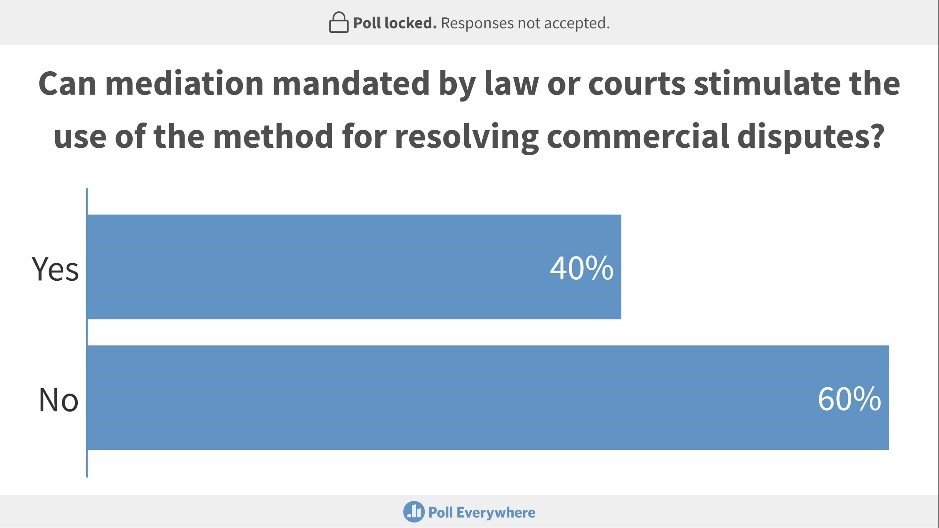

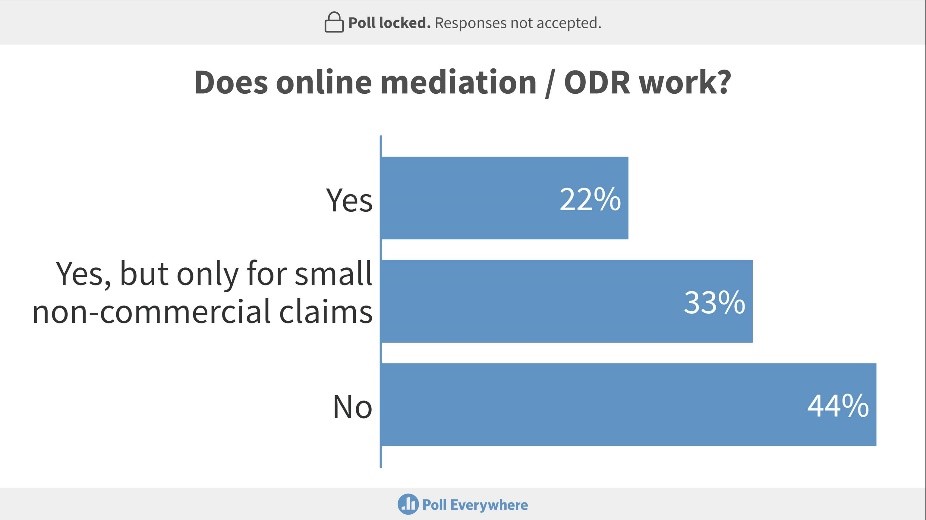
Iglesias finished by stating that there was a danger in multi-layered clauses which resides in its mandatory nature. This was in a sense opposed to the voluntary nature of mediation.
Sellers noted that more than 200,000 cases were resolved online each year, and that there was an online only court in China that has functioned for some time.
Erickson summarised, that mediation is here to stay, and that nowadays mediation is taught at universities.
Triana concluded by stating that mediation was good business for lawyers and that several mediation procedures were financially equivalent one long trial.
Back to Closely Held and Growing Business Enterprises Committee publications